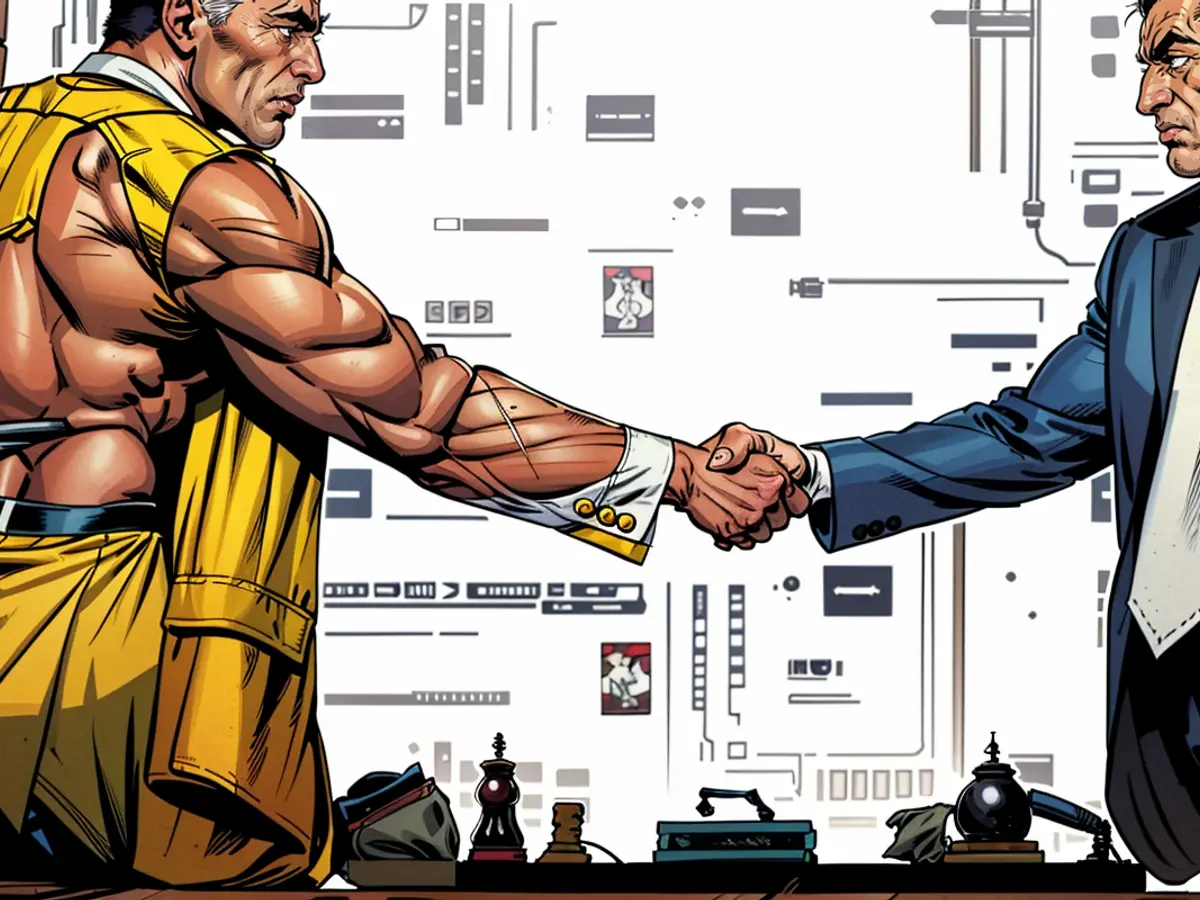- Kasparov in Opposition to Karpov: Challenging the Established Order
It's a bright day on September 10, 1984, as the two competitors for the World Chess Championship make their way to the House of Trade Unions in Moscow: Anatoly Karpov, the defending champion for ten consecutive years, and his young challenger, Garry Kasparov, only 21 years old. The iconic venue, with its grandiose colonnaded hall adjacent to the Bolshoi Theater and opposite the Kremlin, holds a legendary status - it was the site of grand concerts, party congresses, and even show trials under dictator Josef Stalin during the Soviet era.
The crowd outside the building is extensive, evincing the significant interest in the championship. Chess is an integral part of Soviet culture and serves as a testament to the intellectual superiority of the socialist system. The dismay was apparent twelve years prior when the American Bobby Fischer broke the string of Soviet victories. Consequently, the admiration for Karpov, who restored the title to Moscow in 1975, is even more profound - albeit he claimed the title without a contest, as Fischer refused to participate under conventional circumstances.
Karpov receives an order from Leonid Brezhnev, the head of state and party, before the championship: "If you manage to retain the crown, retain it!" With this, Karpov also garners the unwavering support of several influential chess officials in his title defenses - particularly against dissident Viktor Korchnoi, who fled the country.
Karpov embodies the very essence of a Soviet citizen. Originated from a working-class family in the Ural region, he is reserved, shy, and unflinching in his loyalty to the party. Karpov is a master of positional play, amassing small advantages and systematically crushing his rivals. He avoids taking risks and is precise in punishing errors.
Kasparov presents an entirely different image. His powerful attacks on the chessboard demolish his opponents' positions. Beyond the game, the volatile prodigy frequently stirs up controversy. The son of an Armenian woman and a Jew, born Garik Weinstein in Baku, also enjoys considerable patronage from Heydar Aliyev, the Azerbaijan party leader. However, he is considered a maverick, symbolizing the spirit of perestroika that would begin under party leader Mikhail Gorbachev a year later.
Kasparov's start is disastrous
The competition begins in the worst possible manner for the impassioned Caucasian. In the contest arranged for six winning games, losses don't count, he trails 0:4 after only nine games. He acknowledges in hindsight that he underestimated Karpov. His previous opponents were unable to withstand Kasparov's attacks, while Karpov retaliates with icy efficiency.
Thus, Kasparov alters his strategy. Instead of pursuing a decisive victory, he now aims for a draw to gain rest. His strategy pays off. Although Karpov wins the 27th game, the older player appears more drained. The contest extends for several months, and suddenly Kasparov manages to win his first game. He wins successive games in the 47th and 48th rounds, reducing the score to 3:5 - and surprisingly, the competition is halted.
FIDE President Florencio Campomanes cites concern for the participants' health as the reason for this halt. Nonetheless, the actual reasons remain enshrouded in secrecy, as FIDE heavily relied on the Soviet chess federation at the time. Both competitors express discontent, but it is Kasparov's protest that leaves a lasting impact. Enraged, he storms the stage and accuses the competition of being a theatrical production aimed at preserving Karpov's title. For the first time, a Soviet chess player publicly challenges the powerful functionaries of the federation. It's a risky move, but for Kasparov, it results in success. The World Championship match is rescheduled for 1985, only twenty-four games long, and this time, Kasparov emerges victorious, securing the title with a score of 13-11. He defends his title three times against his long-time adversary until he breaks away from FIDE in acrimony in 1990. He revolutionizes chess, founding his own professional association and competing against chess computers. In 2000, he loses the title to the much younger Vladimir Kramnik.
Kasparov's political inclinations have long been evident. In the 1990s, he supports Russian President Boris Yeltsin, but he severely criticizes Yeltsin's successor, Vladimir Putin, for his increasingly authoritarian policies. Kasparov aligns himself with the liberal opposition around Boris Nemtsov and contemplates running for president in 2008. However, his political career does not meet the same level of success as his chess career. He is detained during protests, and ironically, it's Karpov who delivers food to his cell. Eventually, Kasparov flees Russia, seeing little chance of immediate change and fearing prosecution. He continues to fiercely criticize Putin and his war against Ukraine, but his voice is barely heard in Russia.
Presently, Karpov, now 73, remains the preferred choice of the establishment. Since 2011, he has been occupying a seat in the Duma, loyal to the Kremlin, voting in favor of all its legislations. His initial subtle critiques of the war gradually fade away following an enigmatic incident at home. Upon Putin's recent re-election, Karpov promptly expresses his congratulations on his Telegram handle. Despite the EU imposing sanctions on him, Karpov continues to thrive in Russia. Even a movie titled "Chess Champion" has been produced in Moscow, depicting him as the valiant victor over the deceitful Kortschnoi, and the Soviet Union as a nostalgic utopia.
Kasparov's struggle against Karpov in the World Chess Championship continues, with the young challenger recognizing his initial miscalculations. He shifts his strategy to secure draws, aiming to regain strength and momentum.
After the unexpected halting of the competition due to concerns about the players' health, Kasparov seizes the opportunity to critique the process, accusing it of being a theatrical production aimed at preserving Karpov's title. This bold move sets the stage for their rematch in 1985, where Kasparov ultimately emerges victorious, becoming the new World Chess Champion.






